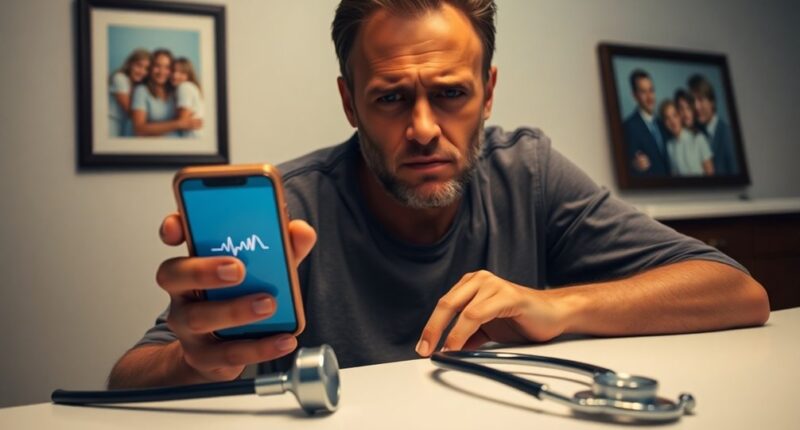You're not alone if you struggle to share your heart health data with your doctor. Many Americans feel uncertain about how to present the information or question its relevance. You might assume that regular check-ups are enough. These barriers can prevent you from establishing a collaborative relationship with your healthcare provider, ultimately affecting your health management. Understanding the importance of sharing this data can change your approach to heart health—there's more to discover about this crucial topic.
Key Takeaways
- Many patients feel uncertain about how to present their self-monitored heart health data to healthcare providers.
- Individuals often assume that standard check-ups provide sufficient information about their heart health.
- There is a lack of awareness regarding the insights that self-monitored data can offer to healthcare discussions.
- Patients may not recognize the importance of sharing their health data for proactive management and early detection of issues.
- Barriers to communication hinder the establishment of collaborative relationships with healthcare providers.

Why aren't more Americans sharing their heart health data with doctors? It's puzzling, especially since nearly two-thirds of you're using health monitoring devices like smartwatches, portable blood pressure machines, and fitness apps. Yet, despite this impressive number, only one in four of you actually shares that vital data with your healthcare providers. This disconnect raises significant issues worth exploring.
Many patients, including you, may not fully grasp the importance of sharing your heart health data. When you monitor your heart health with these devices, you're collecting valuable information that can help your doctor detect potential heart issues before they escalate. The proactive management of your health relies heavily on communication with your healthcare provider, and sharing your data is a crucial step in that process.
Unfortunately, many of you remain unaware of how much this information can impact your overall health and well-being.
Barriers also play a significant role in this lack of communication. You might feel uncertain about how to present your data to your doctors or even question whether it's worth discussing. It's easy to assume your doctor has enough information from standard check-ups, but that's not the case. Your self-monitored data holds insights that could lead to more personalized treatment and better outcomes.
By sharing your data, you foster a collaborative relationship with your healthcare provider, enhancing your role in your own health management.
Moreover, raising awareness about the value of sharing this data can empower you as a patient. Participating in your healthcare journey not only helps your doctor understand your heart health better but also encourages you to take an active role in monitoring your health.
Engaging in open discussions about your heart health data can lead to better-informed decisions and a more tailored treatment approach.
Conclusion
In conclusion, it’s crucial you take the initiative to share your heart data with your doctor. By doing so, you’re not just improving your own health but also contributing to better care and outcomes for everyone. Don’t let fear or misunderstanding keep you from having open conversations about your heart health. Remember, your doctor is there to help you, and sharing this vital information can make all the difference in managing your well-being. Additionally, be proactive in discussing specific concerns, such as hidden muscle fat and heart risk, which can significantly impact your cardiovascular health. Educating yourself on these topics will empower you to ask informed questions and engage more effectively with your healthcare provider. Taking these steps not only enhances your own health but also creates a ripple effect, encouraging others to prioritize their heart health as well.








